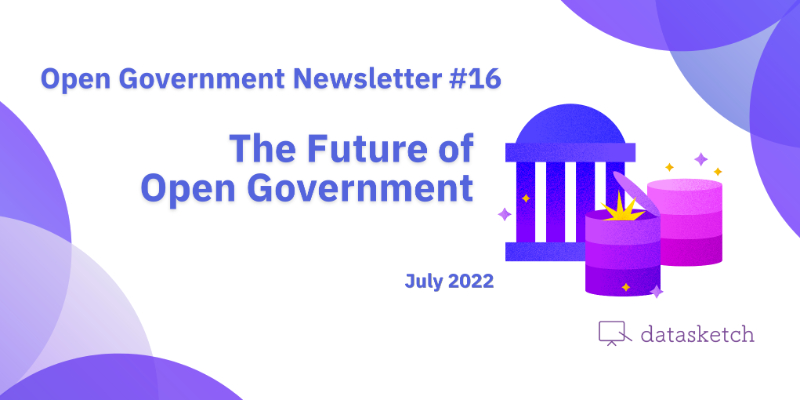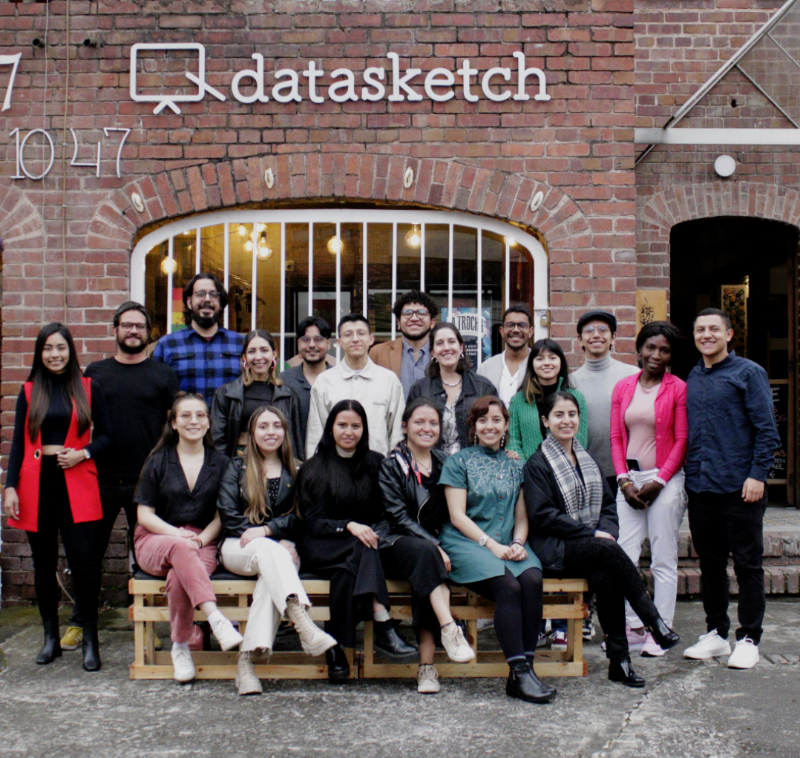The Future of Open Government - Open Gov #16
The future of open government encompasses work on innovation in the public sector, OGP's 2023-2028 strategy, data-driven anti-corruption tools, and open data for social change.
Available in:

How is your week going? First, we are pleased about the recognition of our work in innovation in the public sector that we have received from the Govtechlab Madrid program of the IE PublicTech Lab academic center.
We have been included in the Govtech 2022 List in the Internal Management and Smart Operations axis for offering solutions that increase the efficiency of the public sector. It is the third edition of the list, which highlights the 100 best GovTech startups in Spain and Latin America. ❤️🔥
In addition, this week has been published the article “Implementation of the Open Data Barometer 2020: challenges and opportunities in Chile, Colombia, Ecuador, and Peru”, co-authored by Laura Ortiz, our Marketing and Communications Director. It analyzes the implementation and scope of the Barometer and includes interviews with those responsible for the data collection. The authors interviewed JP and Juliana Galvis for the case of Colombia, our CEO and project manager, respectively. 💪🏽
Finally, before this week’s news, do you know our team? Each of the people in this picture makes Datasketch possible. Cami, Lau, and, recently, Felipe are missing in the photo because they are abroad. Thank you for getting this up every day!

Our most recent team photo (almost complete).
Toward the Future of Open Government
OGP continues the co-creation process of its 2023-2028 strategy, which already has some preliminary results from the virtual discussions it is conducting.
The discussion on OGP opportunities and challenges is taking place on Pol.is, a real-time, collaborative virtual tool. We take this opportunity to invite you to participate in the online discussions, still available.
At Datasketch, we believe in Open Government and promote it at all levels. At the international level, we have already made our virtual contributions to this discussion, we will participate in the roundtables of the Americas, and we will be in September at the Open Americas congress.
At the national level, we continue inviting the president-elect of Colombia, Gustavo Petro, to prioritize the Open State within the National Development Plan and to commit to the implementation of the V National Open State Plan.
From the territorial level, we invite everyone to take part in participatory processes related to local action plans. One of them is the event Datos, Pola y Gobierno Abierto, which we are organizing at Casa Datasketch for next July 28 in alliance with Gobierno Abierto de Bogotá. The other is the citizen consultation for the prioritization of issues in the five axes of the First Open Government Action Plan of Mexico City, available on the platform Plaza Pública.
Tools against corruption
The European Research Centre for Anti-Corruption and State Building (ERCAS) of The Hertie School has launched its new Corruption Risk Forecast (CRF) website.
The website brings together the Public Integrity Index, the Transparency Index, and the Corruption Risk Forecast. According to its creators, the differential element of these tools is that they are based on tangible facts instead of perceptions, which is the case with other indexes, such as Transparency International’s Corruption Perceptions Index.
To this end, the CRF works with 30 numerical indicators based on facts and directly linked to observed sources, ranging from accessibility to information on land or business ownership to online disclosure of government mining concessions. The CRF contains information on how 120 countries manage corruption. We welcome these initiatives that allow for a global and comparative view of integrity, administrative transparency, and corruption risks in an accessible way and through data visualizations.
Data for Social Change
Open Data for Society is Microsoft AI’s initiative to accelerate the development of solutions that solve social challenges. Its website features a repository of open datasets that exemplify the uses of open data for creating solutions that promote equity and inclusion, sustainability, and the environment. The support of private companies with open source technologies can complement the actions of governments to respond to social issues.
To keep on the radar
-
🌎 Open Americas | Abrelatam-ConDatos and Open Government Partnership
-
🚫 Facebook Broken Promises | Tech Transparency Project
-
Privacy and Digital Rights
- 🇧🇷📹 Sai da minha cara | Coding Rights
- 🇸🇻🕵🏽♀️ Distrust for creation of cybersecurity police | La Prensa Gráfica
- 🇨🇳🔍 “China is building a new modern marvel… the most sophisticated domestic surveillance system in the world” | Paul Mozur | Twitter




